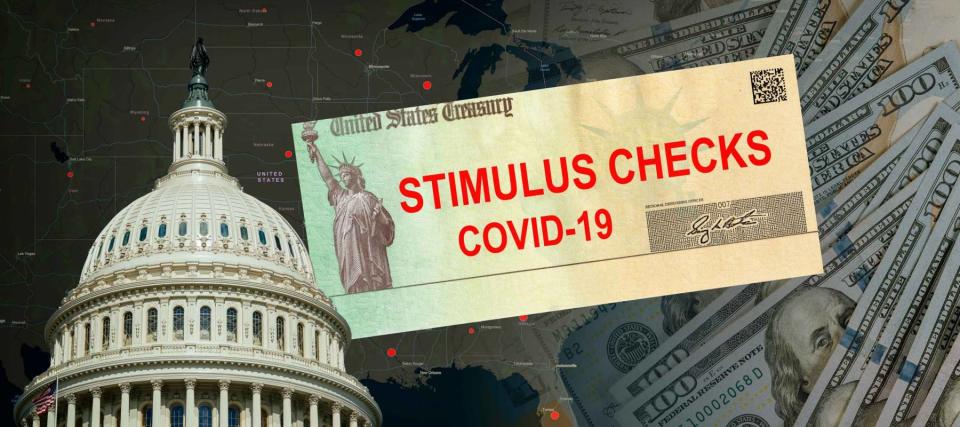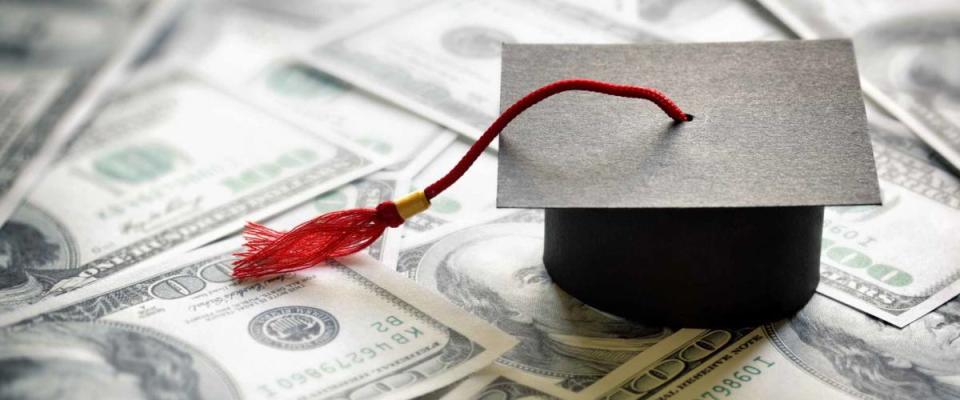The 7 worst ways people are using their coronavirus stimulus checks

Americans continue to receive direct payments from the government to ease the financial strain from the coronavirus pandemic. Not everyone is using the money wisely.
Single individuals have been getting up to $1,200, married couples that file jointly receive up to $2,400, and households with kids get an extra $500 for each child under the age of 17. Check our stimulus check guide if you’re not sure whether you qualify.
Congress is debating whether to put more money directly into the hands of Americans. A bill that passed the U.S. House on Friday would provide up to another $1,200 for every adult and child, to a maximum $6,000 per household.
How you spend the government's COVID-19 relief money is completely up to you, but some options are better than others. Click to see seven that you should avoid.
1. Going on shopping sprees

Although it may be tempting to burn your “free money” on something you’ve always wanted, you should think twice before you splurge.
A fancy new TV and a stack of Blu-ray box sets might ease your quarantine boredom, but keep in mind that there’s no guarantee of a second round of stimulus checks. Senate Republicans oppose the House bill, and President Donald Trump says he'll veto it if it reaches his desk.
Even if you don’t need your stimulus money to cover your expenses at the moment, you’ll wish you'd set it aside if your financial situation changes.
Most financial advisers recommend keeping enough emergency cash saved up to cover at least six months of your essential costs. If you don’t currently have an emergency fund, the stimulus check is a great excuse to start one.
The smartest place to stash your emergency savings is a high-yield savings account, so your money will earn top interest and grow while you’re not spending or investing it.
2. Putting it directly toward debt

If you’re carrying a lot of debt, you might see the stimulus check as an opportunity to pay off a big chunk. Ordinarily that would be a wise move, but building up emergency savings is more practical right now. You have other ways to deal with your debt right now.
A number of financial institutions are allowing customers to defer debt payments during the pandemic, so it’s worth looking into whether your creditors will give you a temporary break.
In addition, the government announced that people with federal student loans can freely skip payments between March 13 and September 30, 2020 and that interest rates will drop to 0% during that time.
Unfortunately, if you got your student loan through a commercial lender, you’ll likely still be required to make payments. But you may be able to reduce the amount you owe and shave a few years off your loan by refinancing.
There are companies that will let you compare student loan refinancing options for free, making it easy to find a better interest rate that will save you thousands of dollars in interest.
3. Trying to 'time the market'

The stock market has gotten hammered since the start of the pandemic. While using your stimulus check to snap up discounted stocks isn’t a bad idea, trying to “time the market” for quick wins could wind up costing you.
There’s no guarantee that a particular stock will rebound to its former price anytime soon. In fact, during this time of instability, any number of government moves, business decisions or a surge in coronavirus cases might cause the market to drop once again.
If you’re eager to invest some of your relief payment, set up a diversified portfolio with an eye to stable, long-term growth. To get started, consider using a robo-advisor, an algorithm-driven service that will make investing quick and stress-free.
It’s all done online, and you can choose how much risk you’re willing to take on. Once you decide on a portfolio, your robo-advisor will monitor it and automatically make adjustments based on changes in the market — all for a fraction of the cost of a human adviser.
4. Thinking only about the here and now

It’s true that we’re living in a particularly frightening time, but the concerns of the future wait for no one.
A few years ago, the Government Accountability Office reported that half of American households 55 and older had no retirement savings whatsoever. Plenty of others don’t have nearly enough.
If you’re still of working age, putting even 10% of your relief payment into a retirement fund like a 401(k) or an IRA will pay huge dividends down the road.
Not sure where to start? Find a company that can connect you with a certified financial planner online or over the phone. You’ll be able to prepare for your golden years even while social distancing.
Your CFP will craft a personalized plan based on your financial goals and tell you exactly what to do if you want to retire comfortably.
5. Using it as an excuse to kick back

Extra money in the bank can lull you into a false sense of security. The hard truth is that during a global health and economic crisis, anything can happen — and even 100 stimulus checks wouldn’t provide for a family that loses a breadwinner.
The easiest way to protect your loved ones is to buy a life insurance policy. Lots of people think getting insurance is a complicated process, but it can be as easy as booking a hotel online.
In just 90 seconds, you can find multiple life insurance rates tailored to fit your family’s needs. Depending on how old you are and where you live, you could get $1 million in coverage for as little as a dollar a day.
That’s a small price to pay for peace of mind.
6. Blowing it all at chain stores

Even though big-box stores might be the easiest place to do your shopping during the pandemic, your stimulus check will make more of a difference if you buy from local businesses instead.
You may save a few bucks at a chain — and some of them are having financial problems of their own — but failing to support your local economy at this critical time could have long-term consequences.
If you want shops and restaurants in your area to survive the lockdown, it's important to support them as much as possible.
Buy your groceries at independent markets. Order takeout from different places in your neighborhood. And, if possible, donate part of your relief payment to organizations that help people and businesses in your community.
7. Stocking up on pointless supplies

Panic buying is a natural response, but using your stimulus check to hoard things you don’t need can be costly and wasteful.
For example, many people have decided to buy up every case of bottled water they find. The water in your tap is treated and completely safe to drink.
All you need is a reasonable supply of essentials in case you’re exposed to the coronavirus and need to isolate yourself for two weeks. Be sure to grab:
Nonperishable food, for yourself and your pet.
Medications, both prescription and over-the-counter.
Household cleaning supplies, to disinfect your living space.
You can make the most of your supply runs (and your stimulus check) by using a cash-back card. One of the best nets you up to 10% cash back on your purchases and allows you to choose whether you want your fees to help with causes including anti-poverty efforts, clean water, health, education, the environment and human rights.
